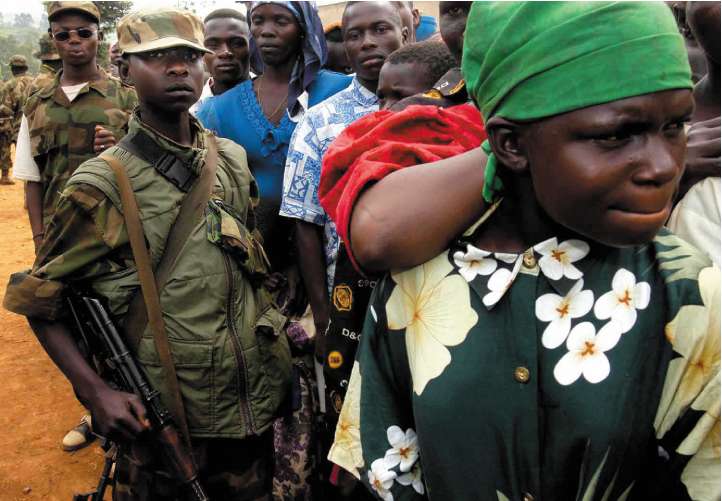No justice for Congo's child soldiers as trial of militia chief fails
International Criminal Court to hold hearing this week to consider the release of Thomas Lubanga

Your support helps us to tell the story
From reproductive rights to climate change to Big Tech, The Independent is on the ground when the story is developing. Whether it's investigating the financials of Elon Musk's pro-Trump PAC or producing our latest documentary, 'The A Word', which shines a light on the American women fighting for reproductive rights, we know how important it is to parse out the facts from the messaging.
At such a critical moment in US history, we need reporters on the ground. Your donation allows us to keep sending journalists to speak to both sides of the story.
The Independent is trusted by Americans across the entire political spectrum. And unlike many other quality news outlets, we choose not to lock Americans out of our reporting and analysis with paywalls. We believe quality journalism should be available to everyone, paid for by those who can afford it.
Your support makes all the difference.Victim number A105 was 10 years old when he was kidnapped from his village near the gold fields of central Africa and conscripted into the militia. Like thousands of others, the child – his name has been replaced with a number to keep him safe – was forced to fight in the armed wing of the UPC movement in the Democratic Republic of Congo (DRC), under orders to slaughter all their enemies: men, women and children. Friends and comrades who tried to escape the horror were shot.
On Tuesday, Thomas Lubanga, the man allegedly responsible for that horror, should have been facing justice at the start of the first trial by the International Criminal Court (ICC). Instead, with the proceedings lying in ruins, the court will hold a hearing to consider his release.
Judges have ruled that the former warlord cannot get a fair trial because the prosecution has failed to hand over documents to the defence or court which could potentially prove his innocence or mitigate any sentence. A105 and the other child soldiers involved in this case are unlikely to see justice done.
Anneke Van Woudenberg of Human Rights Watch, who is in the DRC, said: "We've documented numerous crimes by Lubanga. It would be a real catastrophe if this trial does not go ahead, not only would it be a blow against justice, it would send a signal that warlords are not going to be held to account. At the same time, it is vital that the trial is free and fair."
She met Lubanga in his compound when he was in power: he showed no remorse and denied all allegations. "His compound was full of child soldiers. We said, 'You have got children right outside your window', but he said, 'They are 18 years old, they are just a bit stunted in growth."
The conflict in Ituri saw the Hema tribe – represented by the UPC (Union of Congolese Patriots) – wage war on the Lendu, with atrocities on both sides. Soldiers from Rwanda and Uganda also become involved.
Lubanga's UPC was implicated in widespread ethnic slaughter, torture and rape, according to Human Rights Watch.
The prosecution has said in a statement that child soldiers were instructed "to kill all Lendu, including men, women and children".
The slaughter was part of a wider conflict thought to have caused the deaths of five million people in the region in the past decade.
Today, a ceasefire signed recently by various factions in the DRC is breached regularly and there are still about 30,000 child soldiers.
Jasmine Whitbread, chief executive of Save the Children, has just returned from the DRC, where she said one group of staff had been cut off by fighting. She met two escaped child soldiers who were kidnapped during a scout meeting seven months ago in the Kivu region.
"They had been forced to kill people, terrorise and loot villages," Ms Whitbread said. "Of the eight scouts abducted, two died from travelling through the bush, carrying heavy loads, and two died in combat. The two who managed to escape were very concerned about the ones they had left behind."
Victim A105 was also one of the "lucky" ones, but Carine Bapita, his Congolese lawyer, said his time as a child soldier had taken a terrible toll: "Although he has never confirmed that he killed anyone... his friends have admitted having done so, so it's very possible that he did too. It is still very early and difficult for him to talk about his experiences."
Join our commenting forum
Join thought-provoking conversations, follow other Independent readers and see their replies
Comments